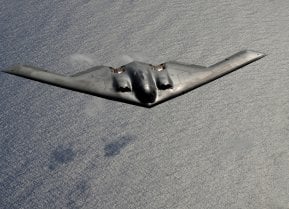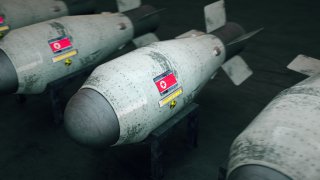'Treasured Sword': Why North Korea Won't Easily Give Up Its Nuclear Weapons
Kim Jong Un has made it clear in everything he has said and done that he has no intention of getting rid of North Korea’s nuclear weapons capability – the “treasured sword” that he regards as essential to the survival of his regime.
Kim Jong Un has made it clear in everything he has said and done that he has no intention of getting rid of North Korea’s nuclear weapons capability – the “treasured sword” that he regards as essential to the survival of his regime. He states repeatedly that the DPRK’s possession of nuclear weapons is irreversible and non-negotiable. Its permanence is even written into North Korean law.
Why North Korea Wants Nuclear Weapons
For Kim Jong Un, nuclear weapons are a vital asset. North Korea’s initial motivation for seeking nuclear weapons may have been defensive – to deter foreign (mainly U.S.) interference or attack. This motive persists, as North Korean leaders remain deeply suspicious of U.S. intentions toward the DPRK.
But whatever the North’s initial motivation, Kim Jong Un may feel emboldened by his expanding nuclear and missile capabilities to pursue more offensive goals, including intimidating South Korea, undermining the U.S.-ROK alliance, and engaging in increasingly aggressive provocations. Kim won’t want to give up the nuclear arsenal that supports either these defensive or offensive objectives.
There are other reasons why North Korea won’t part with its nuclear weapons. They have been a source, one of the only sources, of legitimacy and pride for the regime and have been used to justify the sacrifices of the North Korean people. They are one of the few reasons the world pays any attention to North Korea, and they provide leverage for Pyongyang with other countries. And not least, they have helped secure the loyalty and support of key domestic constituencies, including the military and nuclear establishments, for Kim family rule.
If North Korea were ever to give up its nuclear weapons, it would be the result of either a fundamental transformation of the policies and values of the current regime or the collapse of that regime. Neither outcome can be dismissed altogether, especially the eventual collapse of the regime.
But we can’t count on either one, at least not in the near term. Realistically, we will have to live with North Korea’s possession of nuclear weapons for the foreseeable future.
But that doesn’t mean the United States and its allies should accept North Korea as a permanent and legitimate nuclear-armed state. It acquired nuclear weapons illegally and deceitfully. Accepting the DPRK’s nuclear capability would set a dangerous precedent damaging to the global nonproliferation regime.
What America and Its Allies Must Do
So, the United States and its allies should continue to adhere to the ultimate goal of the complete denuclearization of the Korean Peninsula, however remote that goal may be.
But at the same time, it should be prepared to engage with North Korea on more modest, near-term steps that can limit the North Korean threat, and especially reduce the risk of intentional or inadvertent armed conflict that could escalate to the nuclear level.
Robert Einhorn is a senior fellow at the Brookings Institution. From 2009 to 2013, he was Special Advisor to the Secretary of State for Nonproliferation and Arms Control and a member of the U.S. negotiating team for the Iran nuclear negotiations.
Image Credit: Shutterstock.


